Drinking tea correctly benefits health, but drinking it incorrectly can turn even good tea into poison.
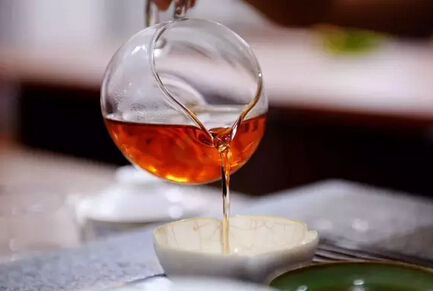
Men who drink tea don't go bad, and women who drink tea are the most adorable! Tea drinking is a deeply rooted dietary culture in China. Many people love the fragrance of tea and are accustomed to steeping a few tea leaves at work, drinking it all day; serving guests with a cup of tea; or enjoying a cup of tea during leisure time. However, this small leaf can strengthen the body if consumed properly, but if drunk incorrectly, it can cause discomfort. Sometimes, drinking tea in certain ways can turn good tea into poison!
Not Cleaning Tea Utensils—Increases Cancer Risk
▼
As the saying goes, "Drinking tea without cleaning the cup invites the king of hell to claim your life." Regular tea drinkers know that tea stains accumulate on tea utensils over time. How to remove tea stains and clean them becomes crucial. Tea stains are residues left by tea polyphenols on tea utensils. Over time, they can produce toxic substances like cadmium, lead, mercury, arsenic, and carcinogens like nitrites, which may lead to premature aging and other side effects.
Solution: Soak the utensils in heated rice vinegar or baking soda overnight, then scrub with a toothbrush for easy cleaning. Note that if using a purple clay teapot, avoid this method. Purple clay teapots have pores that absorb minerals from tea stains, which helps maintain the teapot and prevents harmful substances from leaching into the tea.
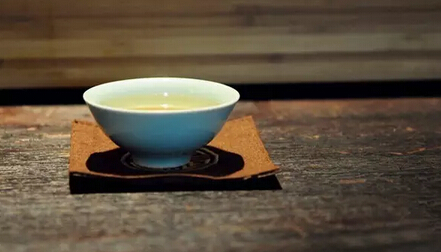
Drinking Scalding Tea—Damages the Esophagus
▼
Research shows that drinking tea that's too hot can harm the esophagus. Generally, avoid tea hotter than 70°C. The outermost layer of the esophagus can only tolerate temperatures of 50–60°C. Beyond this, the mucosa gets burned, which may lead to esophageal cancer over time. Some argue that tea must be drunk hot to appreciate its aroma. However, proper tea tasting involves first smelling the aroma, observing the color, and then tasting, by which time the temperature is around 50–60°C, suitable for a comprehensive evaluation.
Solution: How to judge the temperature? Freshly brewed tea is 80–90°C. Wait 3–4 minutes before drinking, by which time it usually cools to below 70°C.
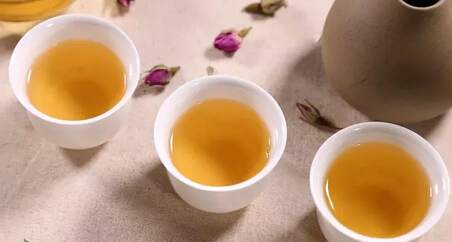
Drinking Cold Tea—Increases Risk of Stones
▼
We often say, "When the guest leaves, the tea turns cold." Cold tea not only tastes worse and looks cloudy but also poses health risks. As tea cools, tea polyphenols and vitamins oxidize, reducing their content. Tea left exposed to air breeds microorganisms, altering its taste and quality. While some argue these microbes are harmless, caution is advised. A U.S. study found that cold tea contains high levels of oxalates, which can form small stones, block the ureter, and increase kidney stone risk.
Solution: Drink tea while warm. For hot weather, try cold-brewed tea, which releases flavors slowly and is said to lower blood pressure. Green tea, lightly fermented oolong tea, and white teas like Baihao Yinzhen and White Peony suit cold brewing. Highly fermented teas like black tea, Tieguanyin, and Pu-erh do not. However, those with cold constitutions should avoid cold-brewed tea.
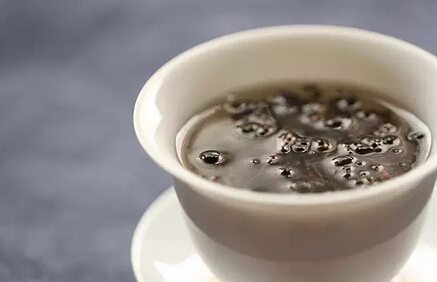
Mixing Tea with Alcohol—Harms Kidneys, Lungs, and Heart
▼
Many believe tea helps sober up after drinking, but this is a misconception:
- Kidney damage: Tea contains theophylline, which has a diuretic effect. Alcohol converts to acetaldehyde in the body, and if not fully metabolized, the diuretic effect can push it into the kidneys.
- Lung damage: In traditional Chinese medicine, alcohol is pungent and enters the lungs, which are linked to the large intestine. Tea is bitter and yin. Drinking tea after alcohol may allow harmful substances to enter the lungs.
- Heart damage: Tea contains stimulants, and alcohol contains ethanol. For those with heart conditions, tea can strain the heart, and combining it with alcohol is especially dangerous.
Solution: After drinking, opt for warm water to speed up alcohol metabolism and excretion. Before drinking, consume milk or egg whites to protect the stomach lining.
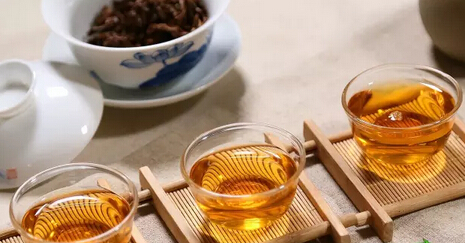
Drinking Tea on an Empty Stomach—Harms the Stomach
▼
Tea contains polyphenols and caffeine, which offer anti-aging, anti-cancer, and anti-inflammatory benefits. However, on an empty stomach, these compounds can irritate the stomach by binding to proteins, dilute digestive juices, and impair digestion. For those with sensitive stomachs, improper tea drinking worsens the condition. Overly strong tea also causes discomfort.
Solution: Fermented teas like black tea and Pu-erh are gentler on the stomach. Adding milk to black tea can further soothe the stomach.
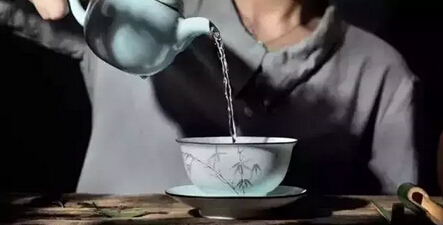
Brewing Tea in Paper Cups—Increases Cancer Risk
▼
Many use professional tea sets at home but switch to disposable paper cups for guests, unaware of the risks. Tests show tea brewed in paper cups darkens faster than in glass cups due to better insulation. The darkening indicates oxidation of polyphenols, reducing flavor, color, and nutritional value. The PE coating inside paper cups may release compounds at high temperatures. Low-quality cups can introduce carcinogens.
Solution: Avoid boiling water in paper cups. Use 75°C water in glass, ceramic, or professional tea sets. High-temperature ceramic is safer than mid-temperature, which may release harmful substances when heated. High-temperature ceramic produces a metallic sound when tapped.
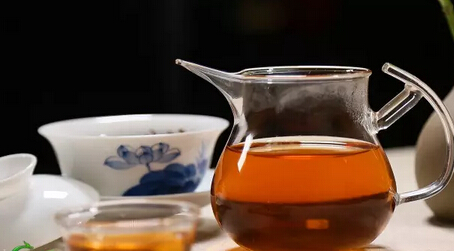
Excessive Tea Drinking—Harms the Kidneys
▼
Tea contains fluoride, and excessive intake strains the kidneys, the primary excretory organ for fluoride. Overconsumption leads to fluoride buildup, damaging renal tubules.
Solution: Healthy adults should drink 6–10g of tea daily, divided into 2–3 brews. Those with high physical activity, oily diets, or exposure to toxins may drink slightly more.
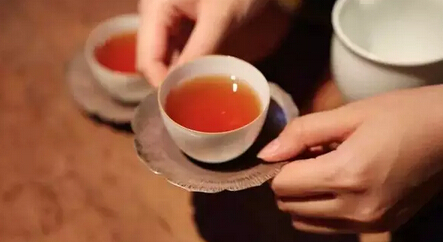
Pairing Tea with Lamb or Dog Meat—Causes Constipation
▼
Tea's tannins bind to proteins in lamb or dog meat, forming indigestible compounds that slow intestinal movement, reduce stool moisture, and cause constipation. Prolonged exposure to toxins in stool increases health risks.
Solution: Avoid tea with these meats. Wait 2–3 hours after eating before drinking tea.
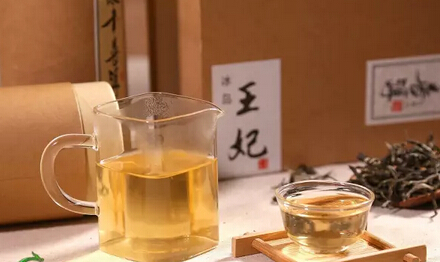
Pairing Tea with Crab—Causes Vomiting or Diarrhea
▼
Tea and crab form hard-to-digest clumps, leading to "gastric persimmon bezoar disease," causing vomiting, diarrhea, or nausea.
Solution: As with lamb, wait 2–3 hours after eating crab before drinking tea.
(Note: Tea with eggs, sugar, medicine, acidic fruits, or seaweed may reduce nutritional value or efficacy, though less severely.)
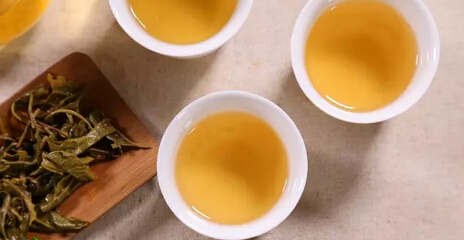
Precautions for Specific Groups
▼
1. Ulcer Patients: Tea increases stomach acid, irritating ulcers. Opt for mild teas like ripe Pu-erh or black tea in moderation.
2. Anemia Patients: Tea's tannins inhibit non-heme iron absorption. Limit tea or drink black tea with brown sugar.
3. Pregnant Women: Tea's polyphenols and caffeine may affect fetal development. Avoid tea during pregnancy and lactation.
4. Children: Avoid strong tea, as it reduces iron absorption and disrupts sleep, affecting growth.
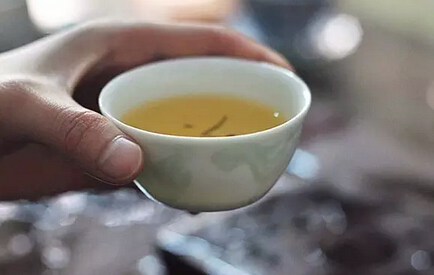
Tea Drinking by Age and Gender
▼
1. Ages 20–25: Focus on detox with green tea, chrysanthemum tea, oolong tea, or bitter melon tea.
2. Ages 26–35: Metabolism slows. Choose teas that nourish, like rose tea, goji tea, or ginseng tea.
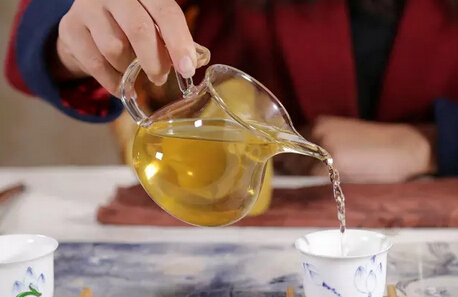
3. Ages 36–50: Middle-aged weight gain relates to slowed metabolism. Opt for teas that protect the heart and delay aging, like green tea, Pu-erh, or saffron tea.
4. Ages 50+: Tea benefits seniors but should be consumed in moderation. Avoid strong or late-night tea to prevent sleep disruption. Coarse teas high in minerals may harm bone metabolism.